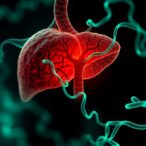
In a groundbreaking study published in Pediatric Research, scientists have unveiled intricate links between maternal obesity, the composition of human milk adipokines, and infant growth trajectories during the critical first six months of life. This research represents a substantial leap forward in our understanding of how bioactive compounds in breast milk, specifically leptin, dynamically fluctuate throughout lactation stages and how these variations impact early childhood development.
Leptin, a hormone primarily secreted by adipose tissue, plays a crucial role in regulating energy expenditure and appetite control. While its systemic functions in adults are well-documented, its presence and functional significance in breast milk have only recently garnered scientific attention. The new study offers unprecedented insights into how maternal obesity not only influences basal leptin levels in the bloodstream but also alters leptin concentrations within human milk—thereby potentially shaping the neonatal metabolic environment.
The researchers meticulously tracked cohorts of lactating mothers stratified by body mass index (BMI) categories from the early postpartum period through six months of lactation. Utilizing state-of-the-art immunoassays, they quantified milk leptin concentrations at multiple time points, correlating these biochemical measures with the infants’ growth patterns, including weight-for-age and weight-for-length metrics. Their findings reveal that maternal adiposity significantly modulates milk leptin concentrations, highlighting a complex physiological interface between maternal health and infant nutrition.
.adsslot_zQL5RwDyhb{width:728px !important;height:90px !important;}
@media(max-width:1199px){ .adsslot_zQL5RwDyhb{width:468px !important;height:60px !important;}
}
@media(max-width:767px){ .adsslot_zQL5RwDyhb{width:320px !important;height:50px !important;}
}
ADVERTISEMENT
One of the study’s most striking discoveries is the temporal alteration in leptin levels throughout lactation. Rather than remaining static, leptin concentrations in breast milk exhibited a non-linear pattern: initial postpartum levels were elevated in mothers with higher BMI but tended to decline more rapidly over time compared to those from mothers with normal weight. Such dynamics could imply that the early neonatal period represents a critical window during which milk-borne leptin may exert outsized influence on infant metabolic programming.
Delving deeper into infant growth trajectories, the researchers observed that higher milk leptin levels in the early lactation phase correlated with a more moderated weight gain by six months, particularly in infants born to obese mothers. This inverse relationship may suggest a protective mechanism mediated by leptin’s known appetite-suppressive and energy-regulating actions, potentially shielding offspring from accelerated early weight gain—a known risk factor for later obesity.
The study further postulates potential epigenetic interactions at play, whereby leptin delivered through human milk could modulate gene expression patterns within hypothalamic appetite control centers during a sensitive neurodevelopmental period. Such modulation might contribute to long-term metabolic health outcomes, underscoring the importance of optimizing maternal metabolic status not only for pregnancy but also for lactation.
Moreover, the research provides a nuanced perspective on the complexity of human milk beyond basic nutrition. Milk is an intricate biological fluid containing myriad bioactive factors that influence infant physiology far beyond macronutrient delivery. Adipokines, including leptin, adiponectin, and resistin, form an endocrine microenvironment that communicates metabolic signals from mother to child, potentially shaping lifelong energy homeostasis.
From a methodological standpoint, the study’s longitudinal design and comprehensive biochemical profiling set a new standard for future lactation research. Frequent sampling allowed for temporal resolution previously unattainable, highlighting the dynamic nature of milk constituents. The integration of growth monitoring with milk leptin profiling enabled a holistic assessment of how milk composition translates into phenotypic outcomes in infancy.
These findings carry profound public health implications, especially given the rising prevalence of maternal obesity globally. If maternal adiposity influences the concentration of regulatory hormones in milk, then interventions aimed at optimizing maternal metabolic health during pregnancy and postpartum could have downstream benefits for infant growth regulation and obesity prevention.
The study also raises intriguing questions about the potential for personalized lactation support. For example, tailored nutritional counseling and metabolic monitoring for obese mothers could enhance the regulatory milieu of breast milk, potentially mitigating risks associated with rapid infant weight gain.
Intriguingly, the research challenges the notion that higher maternal leptin uniformly translates to higher infant leptin levels. The observed dissociation in milk leptin secretion patterns suggests complex modulation at the mammary gland level, possibly influenced by maternal metabolic signals, inflammatory status, or hormonal feedback loops, warranting further mechanistic investigations.
Additionally, the findings prompt a reevaluation of infant feeding practices in the context of maternal obesity. Understanding how breast milk composition changes with maternal health status might inform recommendations around complementary feeding timing and composition to optimize infant growth trajectories.
From a biochemical perspective, leptin’s stability and bioavailability in the gastrointestinal tract of neonates merit further exploration. The hormone’s resistance to enzymatic degradation in milk and its ability to traverse the immature gut barrier could underpin its systemic effects during early life.
The interplay between milk leptin and other adipokines or growth factors in human milk remains an open field of inquiry. Future research might elucidate synergistic or antagonistic relationships among these molecules, clarifying the complex signaling milieu to which the breastfeeding infant is exposed.
Considering the rising tide of childhood obesity and metabolic disorders worldwide, this study offers a compelling argument for lifestyle and metabolic health interventions beginning as early as the perinatal period. Maternal health, milk biology, and infant growth are intimately intertwined, forming a triad that shapes lifelong metabolic trajectories.
Ultimately, the study reaffirms the extraordinary biological complexity and adaptive nature of human milk. No longer viewed simply as nutrition, breast milk emerges as a dynamic endocrine organ—modulating infant physiology in response to maternal cues and environmental conditions. This paradigm shift holds tremendous promise for shaping strategies to improve child health through maternal-infant nutritional and metabolic symbiosis.
As science continues to unravel the multifaceted components of breast milk, such as leptin and other adipokines, the potential for innovative interventions targeting early metabolic programming becomes increasingly tangible. The ongoing exploration of how maternal factors sculpt milk composition will undoubtedly forge new paths in pediatrics, nutrition, and metabolic research for years to come.
Subject of Research: Associations between human milk leptin concentrations, maternal obesity, and infant growth trajectories during the first six months of life.
Article Title: Associations of human milk leptin with maternal obesity and early infant weight trajectories.
Article References:
Hua, MC., Yao, TC., Tsai, MH. et al. Associations of human milk leptin with maternal obesity and early infant weight trajectories. Pediatr Res (2025). https://doi.org/10.1038/s41390-025-03984-4
Image Credits: AI Generated
DOI: https://doi.org/10.1038/s41390-025-03984-4
Tags: adipokines in breast milkbioactive compounds in milkbreastfeeding and childhood obesityearly childhood growth trajectorieshuman milk leptin dynamicsimmunoassays in lactation researchinfant metabolic developmentlactation stages and leptinleptin’s role in appetite regulationmaternal body mass index effectsmaternal obesity and infant growth



